Search Images
Browse Content (p. 369)
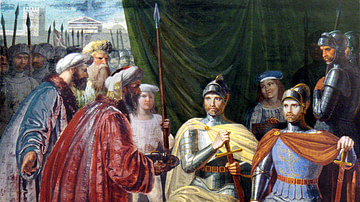
Image
Roger I & Robert Guiscard Receive the Keys to Palermo
Painting of Robert Guiscard and Roger Bosso receiving the keys to the city of Palermo. The city fell to Norman armies in January 1072, after nearly six months of siege.
Fresco by Guiseppe Patania, Palazzo dei Normanni, Palermo, 1830.

Image
Karl Mack von Leiberich
Karl Mack von Leiberich (1752-1828), Austrian general most famous for being defeated by Napoleon during the Ulm Campaign of September-October 1805, during the War of the Third Coalition. Illustration by an unknown artist, from the book Historisches...
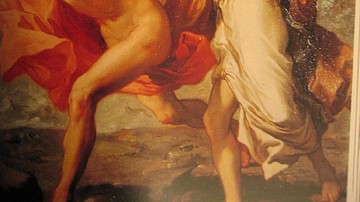
Image
Athamas Kills the Son of Ino by Gaetano Gandolfi
Athamas Kills the Son of Ino, oil on canvas by Gaetano Gandolfi, 1801, Villa Marana, Bologna.
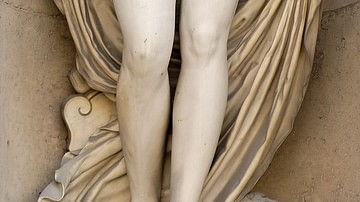
Image
Leucothea by Jean Jules Allasseur
Leucothea (1862), by Jean Jules Allasseur. South façade of the Cour Carrée in the Louvre Palace, Paris.
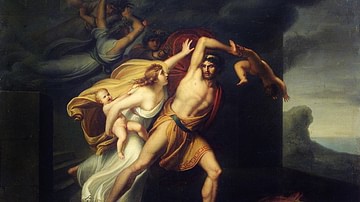
Image
Athamas Taken by the Furies
Athamas Taken by the Furies, painting by Arcangelo Michele Migliarini, 1801.
Accademia di San Luca, Rome.
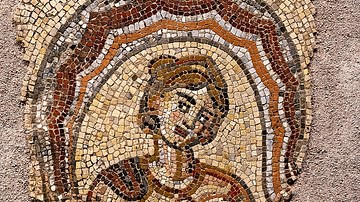
Image
Mosaic Fragment of Ino
Mosaic fragment: Ino (Dotô), discovered in a Roman villa in Saint-Rustice in 1833, 4th or 5th century, Saint-Raymon Museum, Toulouse.

Image
Battle of Günzburg
Death of a French colonel during the Battle of Günzburg (9 October 1805), part of Napoleon's Ulm Campaign (25 September to 20 October 1805), by Georges Moreau de Tours, 1901.
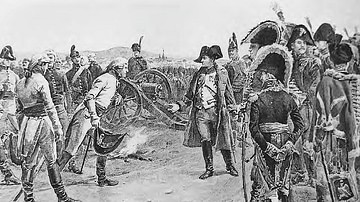
Image
Mack Surrenders to Napoleon at Ulm, 20 October 1805
Austrian General Karl Mack von Leiberich surrenders to French Emperor Napoleon I after the Ulm Campaign (25 September to 20 October 1805). Print by Bousson, Valadon, Paris, after E. Boutigny from Life of Napoleon Bonaparte by William M...
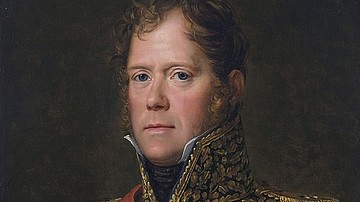
Image
Michel Ney
Portrait of Michel Ney (1769-1815), a French marshal of the Empire during the Napoleonic Wars (1803-1815). After distinguishing himself in the War of the First Coalition, Ney rose through the ranks and was appointed as one of the original...
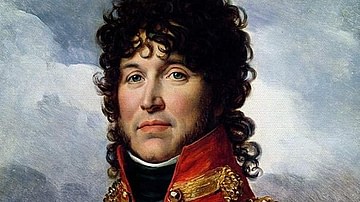
Image
Joachim Murat
Portrait of Joachim Murat (1767-1815), a French marshal of the Empire during the Napoleonic Wars (1803-1815). A daring cavalry officer, Murat served in Napoleon's Italian and Egyptian campaigns, supported the Coup of 18 Brumaire, and distinguished...